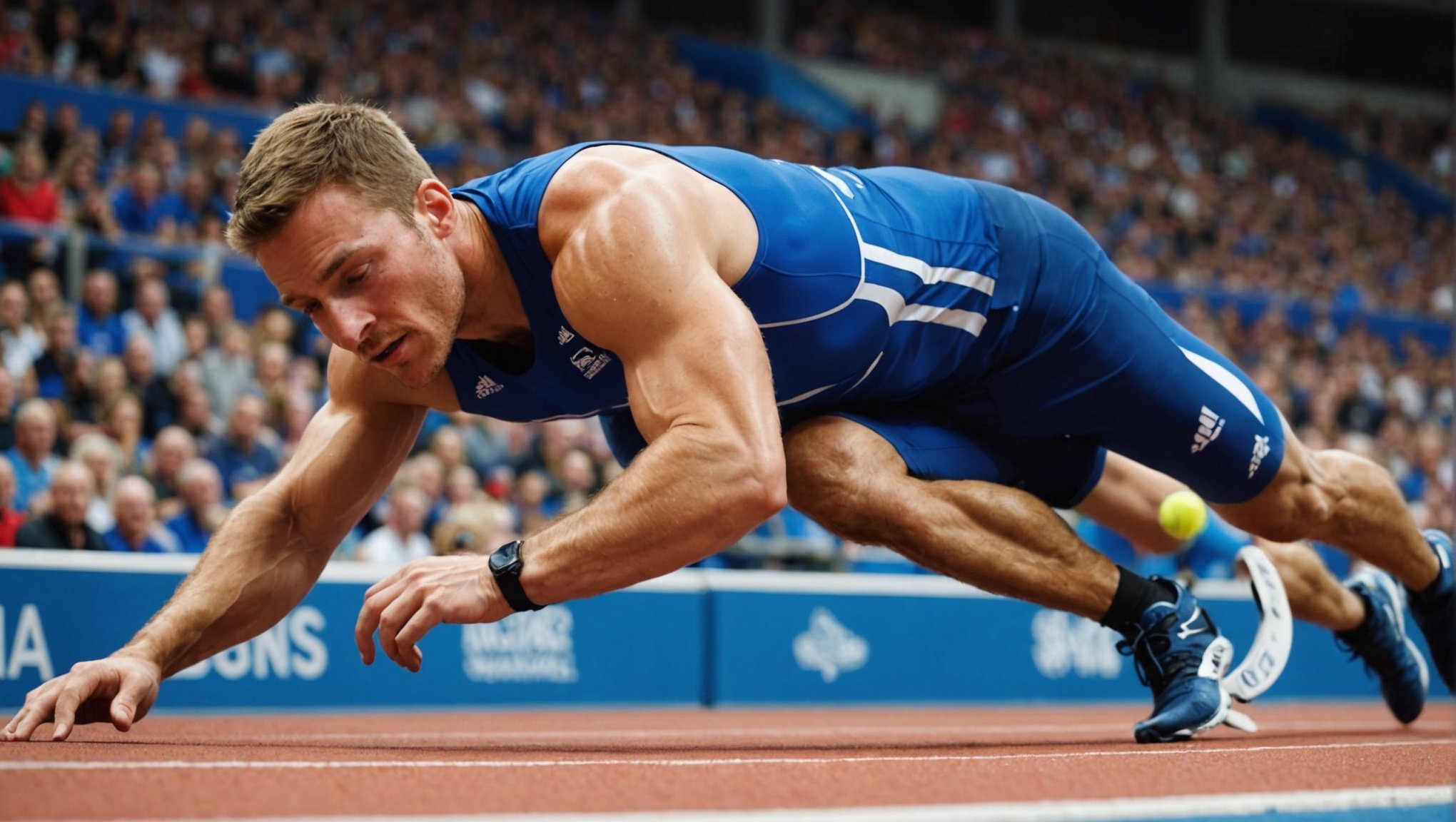Importance of Sleep for Athletic Performance
Understanding the connection between sleep quality and physical performance can unlock new levels of athletic prowess. Athletes require adequate rest for their bodies to recover and recharge. Sleep is essential for optimal recovery, enabling both muscular and mental restoration, which directly translates to enhanced physical output.
The benefits of sleep for athletes are numerous: it plays a crucial role in improving reaction time, speeding up recovery processes, and promoting muscle growth. This restorative period allows the body to repair tissues, build muscle, and strengthen neurological connections, essential for maintaining peak performance.
Have you seen this : Essential Nutritional Approaches for UK Rugby Players to Boost Muscle Recovery
Studies emphasize that insufficient sleep can negatively impact reaction times, indicating how fulfilled rest aids in faster decision-making and agility on the field. For competitive athletes, this could be the difference between winning and losing.
Research findings also highlight a strong correlation between sleep duration and athletic success. Many elite sports teams and athletes incorporate sleep optimization strategies into their routines. This illustrates a broader understanding within the sports community that prioritizing rest can enhance competition results.
Also read : Exploring the Impact of Technology on the Evolution of Football Tactics in the UK
The relationship between sleep and athletic performance is akin to the body’s natural engine – without a full tank of rest, the varying gears of performance, from reaction time to muscle recovery, fail to operate seamlessly. Embrace the regenerative power of sleep to reach optimal athletic levels.
Effective Sleep Strategies for Track Athletes
Sleep is an essential component for athletes seeking peak performance. Proper sleep strategies are critical for enhancing recovery and maintaining optimal physical condition.
Establishing a Consistent Sleep Schedule
A consistent sleep schedule is vital for athletes. Going to bed and waking up at the same time every day helps regulate the body’s internal clock, promoting better sleep quality. It’s crucial, especially before competitions and training sessions.
When preparing for events, athletes should begin adapting sleep schedules well in advance. Minimizing disruptions due to travel or last-minute changes is essential. For instance, gradually shifting bedtime by 15-30 minutes each night can aid in seamless transitions.
Optimizing Sleep Environment
Creating the ideal bedroom environment can significantly enhance sleep quality. A dark, cool, and quiet sleeping area is recommended. Using blackout curtains, earplugs, or white noise machines can help maintain these conditions.
The comfort of a mattress and bedding plays a significant role, too. Investing in the right mattress can decrease discomfort and improve sleep duration. Technology, like sleep apps, also aids in understanding sleeping patterns and making necessary adjustments.
Pre-Sleep Routines and Practices
Engaging in calming activities before bed can enhance the pre-sleep routine. Reading or meditative exercises often prove beneficial. Reducing screen time an hour before sleep is equally important.
Additionally, evening nutritional choices impact rest. Opting for light, sleep-friendly snacks aids in achieving restorative sleep. Avoiding heavy meals might prevent nighttime awakenings, improving overall rest.
Case Studies: Success Stories from UK Track Athletes
Exploring distinct profiles of elite UK track athletes reveals insightful sleep strategies that have significantly boosted their performance. These athletes have meticulously crafted routines that emphasize sleep optimization as a fundamental pillar of their training regimen. For instance, Olympic sprinters attribute their success to adhering strictly to schedules that ensure 8-9 hours of sleep per night, coupled with strategic naps that punctuate their training sessions.
UK Track Athletes’ Sleep Strategies
Through athlete testimonials, it’s evident these methods are not just routine but a critical component of their success. Many athletes report using a combination of cognitive-behavioral techniques to mitigate stress and enhance sleep quality, such as meditation and controlled breathing exercises.
Performance Improvements and Lessons Learned
Analysis of performance improvements illuminates how incremental changes in sleep habits can bring about substantial gains. Enhanced cognitive function, quicker reflexes, and reduced injury rates have been noted among those who consistently prioritize sufficient rest. Athletes credit sleep optimization with improvements such as:
- Increased focus during competitions
- Enhanced muscle recovery leading to fewer injuries
- Greater stamina and energy levels
These testimonials serve as valuable lessons in utilizing sleep as a strategic tool. They underscore the importance of personalized approaches towards better sleep, tailoring rest environments, and maintaining consistency, proving indispensable in achieving sporting excellence.
The Role of Nutrition in Sleep Quality
Finding the link between nutrition and sleep can unlock restful nights for many. Key factors include recognising foods that play a crucial role in better sleep. Incorporating certain nutrients into one’s diet, such as magnesium and tryptophan, can significantly impact sleep quality.
Foods to Incorporate for Better Sleep
Tryptophan and magnesium are powerful nutrients that aid in promoting restorative sleep. Tryptophan, an amino acid found in turkey and cheese, helps the body produce serotonin—a precursor to melatonin, the sleep hormone. Meanwhile, magnesium is a mineral that calms the nervous system and can be sourced from foods like almonds and spinach.
Dietary adjustments can optimise sleep. Aim to eat dinner a few hours before bedtime and stay hydrated, but not excessively, to avoid sleep interruptions. For those who enjoy a small snack before bed, consider options like a banana or a handful of nuts. These choices provide the right energy without interfering with your sleep cycle.
A concise plan can ensure these sleep-promoting nutrients are present in the diet, enhancing overall sleep quality while supporting a healthy lifestyle. Understanding and implementing these adjustments can transform sleep habits significantly, offering a natural and effective approach to achieving restful nights.
Monitoring and Adjusting Sleep Habits
In the realm of sleep tracking for athletes, a plethora of tools and technologies have emerged to meticulously monitor sleep patterns and quality. Wearable devices, such as fitness trackers and smartwatches, offer insights into sleep stages, providing crucial data for athletes seeking to optimize their rest. Mobile apps complement these wearables by offering additional functionality like sleep journals and personalised sleep coaching.
Athletes can benefit from self-assessment by routinely journaling their sleep habits alongside the data collected from these devices. This practice enables the identification of patterns and disruptions in sleep quality. Moreover, it fosters awareness of how day-to-day activities, stress, and diet may affect sleep. Regularly engaging in this process supports athletes in fine-tuning their rest schedules.
Adapting sleep strategies based on performance feedback and collected sleep data is paramount. By evaluating the information gathered, athletes can adjust factors such as bedtime routines, sleep environment, and duration to enhance recovery and performance. Continuous assessment and willingness to modify these strategies ensure that sleep is not only restful but also efficient in promoting athletic recovery and overall well-being. The convergence of technology and personal accountability thus paves the way for optimal sleep health in the competitive world of sports.
Expert Recommendations for Optimizing Sleep
Understanding sleep from an athletic perspective is vital. Sports sleep specialists emphasize the need for athletes to harmonize their rest with their training regimes. They provide expert sleep advice for athletes, highlighting that rest is just as crucial as a workout. Adequate sleep fuels performance, improves recovery time, and enhances mental sharpness.
Athletes can benefit from resources like books and podcasts to deepen their knowledge about sleep science. It’s recommended to explore works by renowned experts such as Dr. Matthew Walker, whose research underlines the importance of sleep for peak performance. These resources offer insights into how sleep affects athleticism, guiding athletes to optimize performance through effective sleep strategies.
Ongoing research into sleep and athletic performance remains crucial. New findings frequently illuminate how sleep can be tailored to meet the specific needs of athletes, ensuring that the advice they receive is scientifically grounded and up-to-date. This ensures that athletes have access to the most recent and relevant information.
For athletes, understanding and prioritizing sleep can be the difference between winning and losing. Incorporating professional recommendations into their routines can help them achieve the necessary balance for success, illustrating how essential tailored sleep advice is for athletic achievement.











